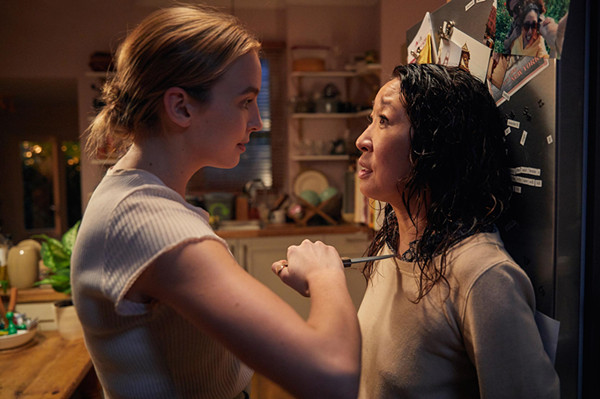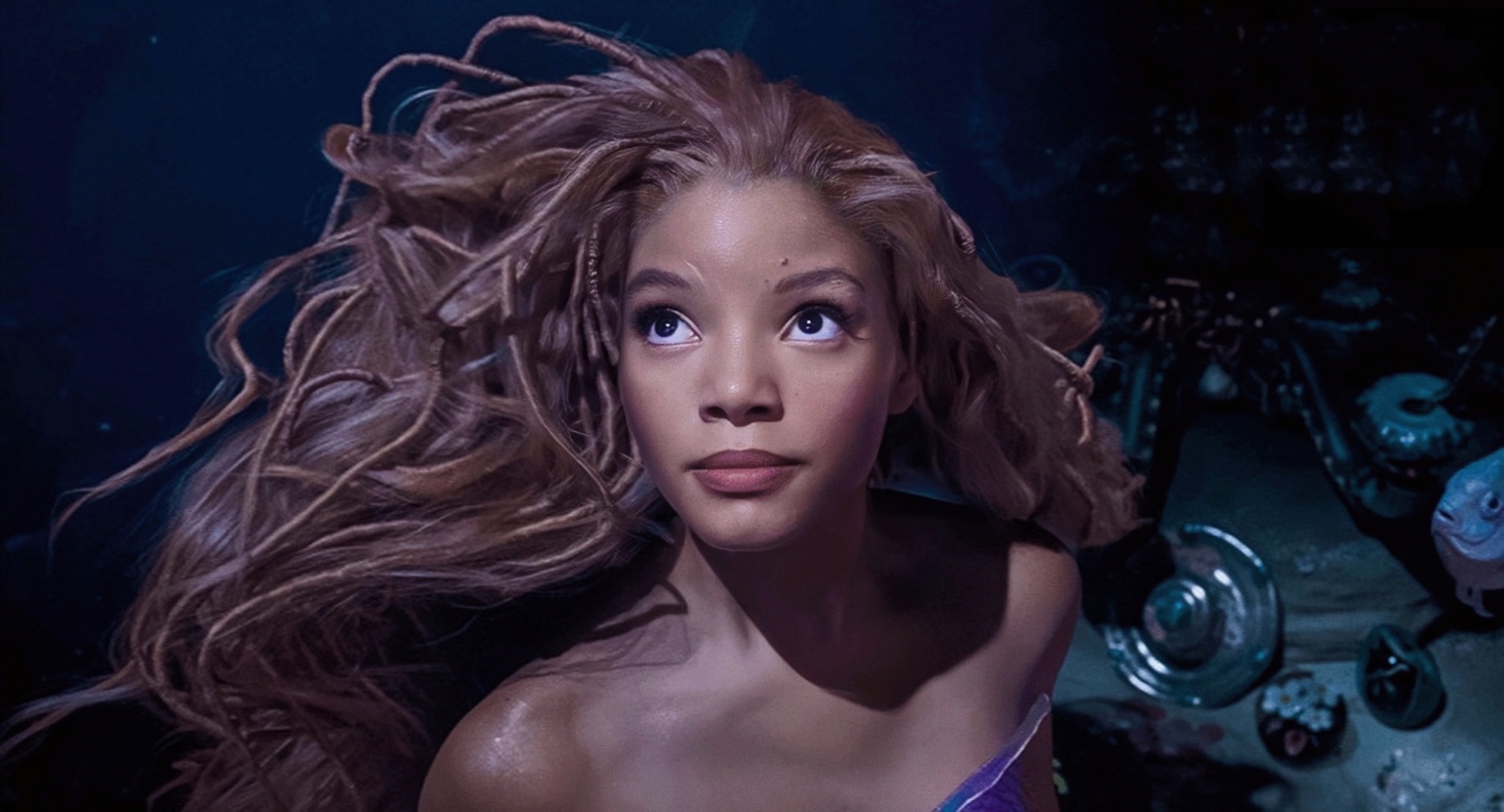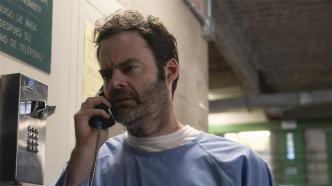
Note: This article contains spoilers
HBO's "Barry," which just came to its finale, is shared with "Succession," which ended in the same month, and "John Wick: Chapter 4," which recently launched on streaming media. One theme: Although fate is changeable, people can never escape their own nature.
Ex-Marine Barry Berkman (Bill Hader) becomes a hired killer after leaving the Army. One day, he passed by the drama school and walked in, wanting to explore his heart by learning acting. Barry pursued his dreams in the entertainment industry and almost became a star. For this dream, he entangled in various gangs in Los Angeles, evaded the police's tracking, and killed everywhere he went. Like John Wick (Keanu Reeves), Barry wants to fight his way out and let the past get away with him.
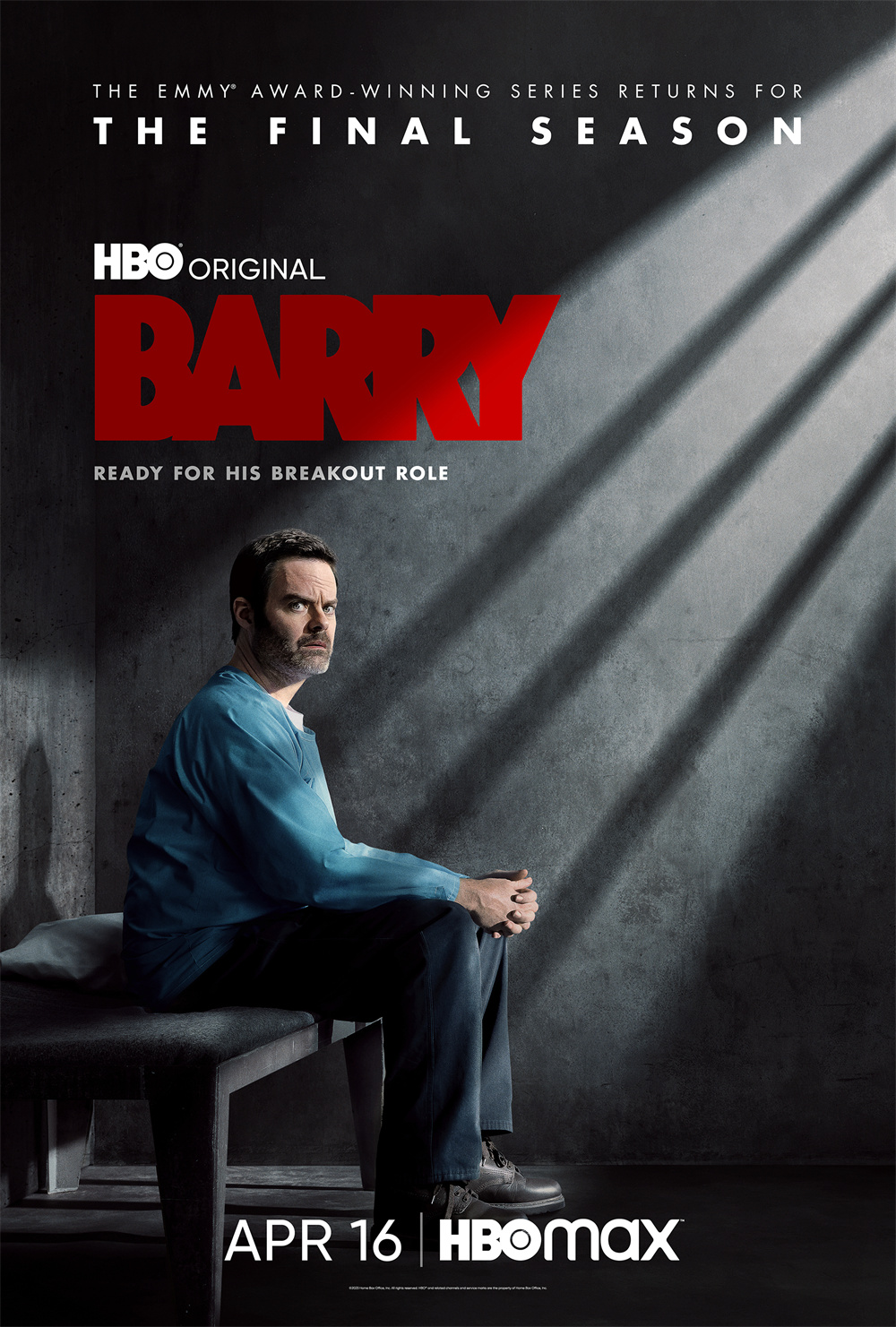
"Barry" season four poster
"Barry" is unexpected everywhere, and the density of turning points is comparable to "Battle of Succession". The thoughts and actions of the characters are constantly changing, and there is no moment of peace; there is always a deviation between thoughts and actions. However, in times of crisis, the characters in this play, like those in "The Battle of Succession", always make instinctive decisions.
So we're not surprised where Sif's (Sarah Snook) vote went in "Succession." We know that she will not be willing to hand over the crown to her brother. This is the driving force behind all her actions. As for whose head it will end up on, she no longer cares. Like her father, Logan Roy (Brian Cox), his only life is to move forward and put others under his feet. This ruthless person never considered what happened after his death, hence the long "Battle of Inheritance".
The children of the Logan family who were involved in the "battle of succession" bear the original sin of their father. John Wick and Barry Berkman, the original sin was their own murder.
Killing is their nature, which cannot be concealed, cannot be changed, and cannot be redeemed. John and Barry, unfortunately (or fortunately) are attracted to something other than killing. John is loved, and Barry is deeply seduced by the actor's dream, so he decides to abandon his nature and devote himself to another life.
Barry's situation is a little more complicated. He wants to explore his heart through performance. As everyone knows, some people's hearts are too dark to be explored at all.
"Barry" has developed from a low-cost black crime comedy in the first season to the end of the fourth season, and has been recognized as a classic of existentialism. The evaluation of it by foreign media is generally higher than that of "Succession War". Of course, part of it is because drama critics are always more willing to shout for the minority. But everyone has no praise. "Barry" made me a fan of screenwriter, director, and starring Bill Hader. I will follow him to any direction he wants to explore and watch every work he creates in the future.
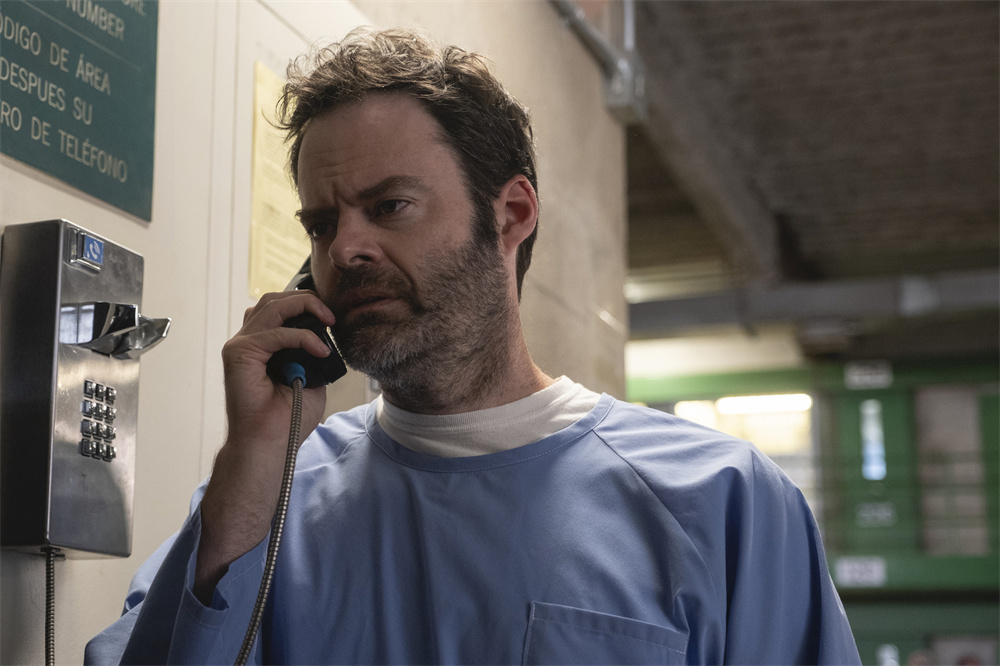
"Barry" season four stills
Apart from the main character, Barry Berkman, the other main characters in the show are also terrible people. Drama school teacher Gene Cusner (Henry Winkler) is narcissistic; Barry's girlfriend, actress Sally Reed (Sarah Goldberg), is playful and selfish; Barry's Hitman agent and mentor Fauci (Stephen Root) is glib and cunning; Chechen mob boss Hank (Anthony Carrigan) is cowardly and ruthless. Moreover, they all love acting, but the paths are different.
Sully believes that being an actor is about being vulnerable, and Hank is trying to hide his vulnerability. Two actors, Sarah Goldberg and Anthony Carrigan, are good at showing the changing faces and hearts of characters in a short period of time. Keen Koussner claimed to be obsessed with drama, and even facing the reporter of "Vanity Fair", he couldn't help arranging a one-man show to tell a story. Even after Fauci was imprisoned, he had to stand in front of the prison TV to attract attention, and delivered a speech that strongly recruited younger brothers.
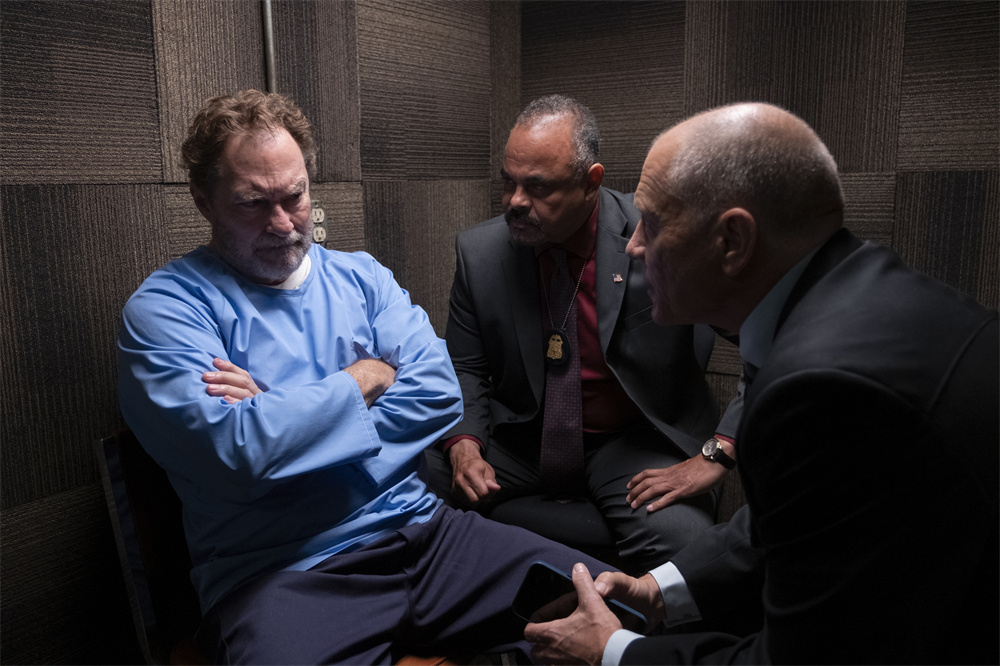
"Barry" season four stills
All these characters are assembled into a colorful Hollywood showbiz, full of sharp irony. These people love acting because they are dissatisfied with their own nature. So Noble plays dirty, Sensitive plays flamboyant, Kind-hearted plays cold, Vulnerable plays strong, Hypocritical pretends to be a lover. Everyone cast their hearts out, with masks welded to their faces, like Sally Reed's brown wig, which she didn't even take off when she went to bed, to cover up her brilliant blond hair.
Others performed unconsciously, but only Barry stepped onto the stage with a clear goal. He wants to explore his heart, but is often frightened by the unfathomable darkness in his heart. But no matter what happens, the show must go on.
Barry has been falling infinitely into the abyss. The success on the stage comes from his killing experience and the motivation of regret. In the fourth season, Barry went into incognito and devoted himself to the love of God, but this love has no roots. He acted according to the will of his heart, pretending to do "the will of God." God became the scapegoat, guiding him back to the world of killing. Barry didn't even know what kind of nature he was trying to conceal through acting.
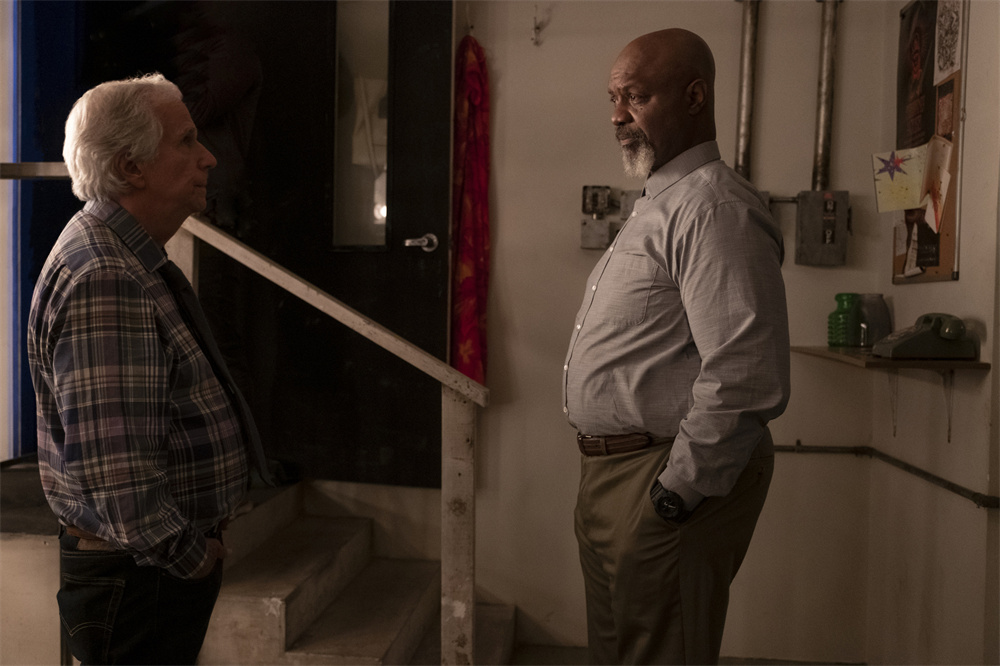
"Barry" season four stills
Both Hollywood and the gang are accelerators of real life. "Barry" pinches the two together to create a wacky new world. In this season, Sally, who was unable to become an actor after her relationship with the killer Barry was exposed, briefly switched to a drama teacher. A classroom scene, a set scene, depicting the piercing eyes and very directness of the people in the circle. Everyone can see other people's careful thinking, and they are not afraid to point it out on the spot or leave the scene collectively, and there is no room for subtlety or maneuvering in their actions.
And gangsters are gangsters. The Chechen gang patted Hank's homosexual lover Chris Poll (played by Michael Elby) on the shoulder a second ago, saying that you are our family from now on, and turned around and shot him immediately. Once again, Anthony Carrigan, who played Hank, contributed a sad and overwhelming performance, and then immediately rewound, and his expression returned to a calm and superb acting.
This drama has always watched the performances of these "actors" from a calm perspective. Their hidden nature performances are full of loopholes and are always seen through. Instead, the audience in front of the TV feel pity and feel sorry for their fate.
Regarding acting, Barry's mentor Fauci said an unfinished sentence, to the effect: "I used to think I was a loyal soldier, and then I thought I was Bole, but in fact..." The confession did not finish, and then he used actions explained his own nature.
For these characters with fatal flaws, the performance is not only out of survival needs, but also reveals their yearning for a better humanity. The shining points of humanity they performed are like candles in the wind, which are often blown out by strong winds and always stubbornly rekindled. Repeatedly, throughout the entire play. Although at critical moments, nature always prevails. But the shining point of bad people is the most touching place in "Barry" or "Battle of Succession".
This kind of work always makes the audience excited and tired. At the end of the two plays, they each come up with metaphors about the whole play to visually show this complex feeling.
In "The Battle of Succession", the three brothers and sisters gather at their mother's house, and after discussion, they decide to elect the second brother Kendall Roy (played by Jeremy Strong) as "king". Once the decision was made, they romped in their mother's kitchen, throwing food from the fridge into a blender and making Kendall drink a messy "king's meal." Sif spat in it before handing it to Kendall.
The symbolic scene in "Barry" takes place during Hank's "Hourglass Hell" massacre. The gangsters celebrate with him that the business is about to succeed. Hank made an excuse to leave, and the sand under everyone's feet suddenly sank. The camera turns black, and the sound of "Guck, Gumble" suffocating in the sand can be heard. A bloodless massacre.
In these two shocking scenes, one shows that human nature is hard to change, and it indicates that Sif will not be willing to help her brother to the top and swallow her own failure; Thinking that there will be a turning point in fate, he is swallowed by quicksand in the next second.
Barry must die, and the Logan children must fail. The ending of these two plays is not a surprise. Although it is expected, the way "Barry" ends the whole play is more intriguing.
Here, all hopes of the characters who have worked hard to create a "better self" are in vain. Hank realized his hypocrisy and died, and Barry died with the obstinate killing intent of "God guides me to revenge". Gene Kushner, the most blackened character in the whole play, after losing the last chance to attract the spotlight in his life, angrily forgets the brilliance of religious fraternity bathed in Israel, and pulls the trigger. Because they can do it, they fight desperately, and those who have no scruples end up miserable in the end.
Instead, the self-destructive, distraught, almost insane Sally Reed finds peace of mind and returns to the world of theater and acting. Fauci, who thought he was a soldier, a Bole, a mentor, and a big villain, saved Barry's son, turned around and disappeared into the darkness, and let himself go.
This play debuts as a black comedy. What is commendable is that even at the end, we see every character gradually drowned in tears, playing in the water (here, playing with sand) in funny sadness, until the cold water is exhausted, it still does not change the comedy.
The sense of humor in "Barry" has always come from the rich information contained in the concise shots. For example, in this season, Fauci was released from prison and went to a fast food restaurant to buy food. One shot was aimed at him, and the old hooligan winked; the other shot was aimed at the waiter in a fast food restaurant, and the old aunt showed a little disdain. Without saying a word, the two have become the chic back of the sunset lover on the convertible sports car.
The rhythm of the comedy is relaxed. Within 30 minutes of each episode, there are always characters doing stupid things, as if they have endless time, and then there is a "snap", the rubber band snaps, and blood splatters on the spot.
In the endless humor, absurdity, twists and falls, the last scene of "Barry" gave the audience another taste. Ten years after Barry's death, his story is finally being brought to the screen. The gangsters disappear, Barry Berkman becomes the tragic hero, and Gene Kushner becomes the villain who kills the cop's girlfriend. The son of Barry, who saw the movie for the first time, looked at the screen with red eyes.
At the beginning of this season, Barry said with regret: "If it wasn't for my whimsical desire to explore my heart, everyone would not be in the current situation."
Barry wanted to explore the darkness in his heart. He succeeds, feasting the audience on the intricacies of the human heart. With his life over, Fauci and Sully, and Hank dead, the complexity is once again buried in shallow narratives.
Hollywood, or time itself, is such a powerful force. They hate complexity, and always try their best to erode the complexity of human nature, leaving only simple black and white and a few records. The complexity is dispelled, which is the ultimate failure suffered by the characters who cannot overcome their own nature.

